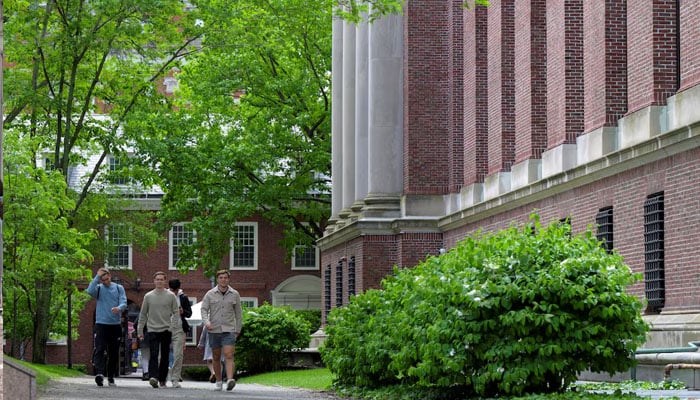
Harvard Wins Extension of Court Order Blocking International Student Ban
Harvard: In early June 2025, the Trump administration issued an executive proclamation that barred foreign nationals from entering the U.S. to study or conduct research at Harvard University. The measure was officially justified on supposed national‑security grounds. Harvard promptly challenged the proclamation in court, arguing that it represented unlawful retaliation aimed at punishing the institution for resisting demands related to governance, curriculum, and faculty ideology.
Legal Proceedings and Previous Rulings
On June 5, Judge Allison Burroughs of the U.S. District Court in Boston issued a temporary restraining order prohibiting implementation of the ban. This blocked two key actions: the May suspension of Harvard’s Student and Exchange Visitor Program (SEVP) certification by the Department of Homeland Security, and Trump’s June proclamation. Both measures would have effectively prevented Harvard from enrolling new international students. Havard maintained that nearly 6,800 foreign students—about 27 percent of its student body—faced immediate disruption to their visas and academic plans.
Subsequently, on June 6, the U.S. State Department reversed its directive to consular posts to refuse all new student visas for Harvard, pending the outcome of legal action. However, increased vetting remained standard practice for applicants.
Latest Extension Order
On June 16, Judge Burroughs granted Harvard a critical reprieve by extending the temporary restraining order until June 23. She indicated that this additional time would allow her to prepare a more comprehensive ruling on Harvard’s request for a preliminary injunction. This extension continues to block both the SEVP decertification and the entry ban while legal arguments proceed. The judge made it clear that the administration faces a steep challenge in demonstrating that Harvard would not suffer irreparable harm if the ban were temporarily enforced.
Arguments from Harvard
Harvard’s legal team, led by attorney Ian Gershengorn, emphasized that the executive action is retaliatory and violates the First Amendment by seeking to influence university policy. The plaintiff argued that retaliating against Harvard for resisting administrative demands undermines academic freedom and constitutional rights. They warned that without legal relief, current and prospective international students would undergo visa denials, forced transfers, or even deportation due to the abrupt policy change.
Administration’s Position
The government described the measures as necessary to ensure that Harvard remains a reliable steward of international education, citing unspecified concerns over national security and civil‑rights compliance. They maintained that the university needed oversight of its international student programs and that the government has authority to regulate visa policy. In court, however, prosecutors struggled to persuade Judge Burroughs that the harm to Harvard would be minimal .
University Community Response
Havard’s international students and faculty expressed relief following the extension ruling. Many had voiced fears over abrupt visa terminations and the potential end of their academic careers in the U.S. Reports indicate that some students were already exploring alternative academic options overseas due to anxiety over the policy’s future. The ongoing legal reprieve has reassured students that they can remain enrolled while the case unfolds.
Next Steps in the Legal Battle
With the restraining order now set to expire on June 23, Judge Burroughs is expected to deliver a decision on a preliminary injunction shortly thereafter. This next ruling could determine whether Harvard remains protected through the university’s upcoming academic term. In parallel, the broader legal fight continues across other institutions, with Harvard already suing to reinstate billions in federal research funding previously frozen and to block efforts to revoke its tax‑exempt status .
Broader Significance for Academic Freedom
This case highlights tensions between executive authority over immigration and institutions’ rights to autonomy. Hvard argues that retaliatory restrictions threaten fundamental constitutional principles such as freedom of speech and scholarly independence. A prolonged or permanent injunction blocking the ban would affirm protections for foreign‑student programs at universities nationwide.
By extending the temporary order, Boston’s federal court has emphasized the gravity of potential damages to an international academic community already unsettled by visa uncertainty.







